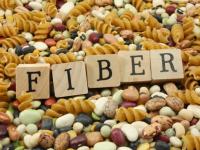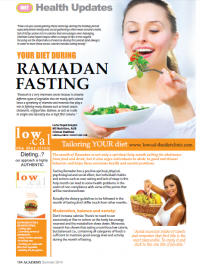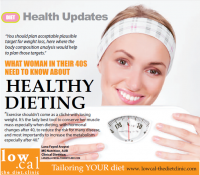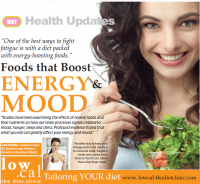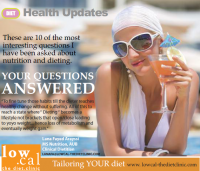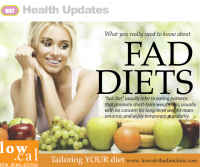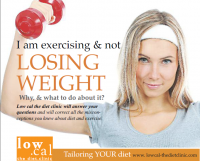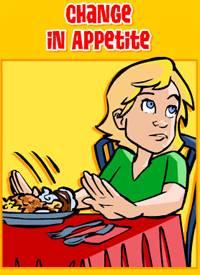Nutrition & stress
PDF :
Nutrition &Stress
“Neurotransmitters, are chemicals released by brain to communicate emotions with body. They affect mood, mental alertness, concentration, sleep, weight and calmness. Good dietary habits and nutrition may help regulate these neurotransmitters and thus control our response to stress, countering its effects on our health and moods.”
Busy schedules, exams, PMS-ing, dating, broken hearted, wound-up, over eating, overworked and exhausted?? ? Need to focus, sleep at night, relieve this stress and stay fit?
ZOOM OUT! RELAX! DO NOT GIVE UP! AND THINK HEALTHY! GOOD NUTRITION can make a DIFFERENCE!
A survey conducted last year by the American Psychological Association, states that: 60% percent said stressful situations left them irritable, 53 percent felt fatigued, and 52 percent were unable to sleep at night.Stress is a thug that we all encounter daily, all of us passed through these stressful events and periods, what is more important is not to surrender and let GOOD FOOD BOOSTS your MOOD!
Physiology behind stress
Under acute stress or when we feel threatened or under attack, our brain releases chemicals and hormones into the bloodstream that enable us to think and react promptly to release this stress. This physiological reaction is described as the "fight or flight response". While experiencing ongoing stress, these "fight or flight" chemicals are released continuously which helps our brain and body to adapt and stay in balance.
Brain chemicals
Neurotransmitters, such as serotonin, dopamine and norepinephrine, are chemicals released by brain to communicate emotions with body. These neurotransmitters affect mood, mental alertness, concentration, sleep, weight and calmness. Lack or decrease in these chemicals levels can cause depression, anxiety, nervousness, insomnia and food cravings. Actually, many foods we eat affect these chemicals level. As a result, good dietary habits and nutrition may help regulate these neurotransmitters and thus control our response to stress, countering its effects on our health and moods.
Stress and weight gain:
Sadly enough, stress doesn't only mess with your brain; it actually messes with your waistline! Upon anxiety and tension, a stress-related hormone cortisol rises making you crave fatty, sugar-packed foods. Those excess calories are more likely to be stored in the abdomen as visceral fat, making you more prone to have type 2 diabetes, heart disease, and gastrointestinal cancers in the future. Furthermore, visceral fat enhances the production of cortisol, starting the cycle all over again and as if you asked for any further assistance! Additionally, exposure to chronic stress leads to an increase in cytokines and C-reactive protein in your body putting you at greater risk for developing arthritis, irritable bowel syndrome, and other chronic diseases.
So what can we do then? Don't panic and arm yourself with these nutrition tips to distressing your mind, body, and spirit.
Have breakfast, do not skip meals and avoid binge eating!
When we are under stressful situations, we tend to skip meals or binge eat on our high-calorie favorite food. Skipping meals, breakfast in particular, can lead to impulse snacking on sweets in addition to overeating at lunch time. Don’t fast more than four hours; your body’s metabolism will start to slow down. You will not want to binge eat at lunch and gain extra pounds secondary to these poor dietary patterns. EAT FREQUENT SMALL MEALS AND PROTEIN BASED SNACKS SUCH AS LOW FAT FRUIT YOGURT TO MAINTAIN A STABLE BLOOD SUGAR.
Eat a ‘rainbow’
Do you know that there are more than 400,000 different types of edible fruits and vegetables on this planet??? The real question should be, how many of these have you ever experienced? Everyone of us should have a variety of this nature`s gift to us including different types and colors of fruits and vegetables to meet the minimum recommendations of daily vitamins and minerals requirements. SO HAVE AT LEAST 5– 6 SERVINGS OF THESE NATURAL PLANTS AND EAT ‘A RAINBOW’ OF FOOD COLORS INSTEAD! Try to do your fresh fruit salad with unsweetened fresh juice and enjoy all natural colors!
Avoid Stimulants
When stressed out, we reach for quick easy stimulants rich in caffeine such as COFFEE AND CHOCOLATE. Caffeine levels remains high in the body for six hours which leads to the release of the stress hormone cortisol, exacerbating the fight or flight response and compounding your stress problem. Moreover, chocolate gives a rapid sugar impulse, a double hit, leaving you weary. TOBACCO AND ALCOHOL also stimulate a hormone called adrenaline in the body again triggering the fight or flight.
Avoid Salt and Drink water
If you want to cope more with stress, help yourself decrease your blood pressure by cutting down on salt. Use minimal amount of salt during cooking while eliminating it at table and avoid processed and packaged foods usually high in salt. Salty foods and snacks on top of increasing blood pressure, they keep your brain and body dehydrated bringing on more fatigue. To deal with this, HAVE AT LEAST 6 – 8 CUPS OF WATER. Water hydrates each and every cell of our body and brain! HINT: Try to distribute your 6-8 cups of water throughout the day with your three main meals and two snacks, i.e. 1 cup with breakfast, 1 cup with snack at 11AM, 2 cups at lunch time…
Move it! Exercise is a free medicine!
Need an emotional lift? Move more! Exercise improves both physical and mental health by stimulating dopamine release; a brain chemical that help you feel better and energized. Furthermore, physical activity will help you feel happier and more satisfied with your physical appearance by controlling your weight and increasing your muscle mass and thus enhancing your self- confidence and self-esteem. Try to have minimum 30 minutes intentional workout 5 days a week. Take your dog for a walk. Crank up your favorite CD and shake your hips. Try to go with a friend to a yoga or Pilates class. Try cardio excises, run long, until all what you can think about is right foot, left foot, right foot... John Ratey, MD, an associate clinical professor of psychiatry at Harvard Medical School says that "Through regular cardio, you actually change your brain, so it takes more and more stress to trigger the fight-or-flight response". Cardio exercises make your heart pump more blood to the brain. More blood means more oxygen; more oxygen leads to better-nourished brain cells! So it`s just that you have to MOVE!
What to choose instead?
Try to choose the below nutrient-rich foods and try not to eliminate entire food groups – each food group provides its own unique nutrients. The below combination will gradually fuel our brain chemicals during the day, keeping our bodies in balance during stressful periods.
Whole grain carbohydrates:
Whole grains provide more protein, more fiber and many important vitamins and minerals, besides the fact that they increase the amount of serotonin in your brain, which makes your mood better, calms you down and helps you sleep. In contrary to simple sugars usually found in chocolates, candies, table sugar and sweetened juices, whole grains do not cause a rapid increase in blood sugar which is usually followed by rapid craving but rather slows gastric emptying lowering the rise in blood glucose hence keeping blood sugar in balance.
Protein-rich foods:
Similarly to whole grains` effect, protein rich food slows down the rate at which sugar is released into your bloodstream and increase satiety (fullness) as well which will make you less likely to grab a high-calorie sweet snack. Protein rich foods include milk and dairy products, eggs, fish, poultry, meats and legumes (beans and lentils)
Essential Fats:
Recent studies show that essential fats, omega-3 fatty acids in particular have positive effect on mood state relieving mild depression. Essential fats are found mainly in seafood such as tuna and salmon, nuts such as almonds and walnuts and plant oils including safflower, sesame, corn and sunflower. So eat grilled fish at least twice a week to ensure adequate Omega 3 levels and Upon stress opt for snacks rich in essential fat such as walnuts and almonds.
Reaching for a package of high fat biscuits when you are feeling blue? Try these healthy refreshing snacks with less than 125 Cal instead!
Have A Fresh Banana; it’s a perfect choice during PMS-ing. Actually it has the sweet taste and all minerals you’re trying to reach in chocolate but rather in a healthier package. It’s rich in potassium and vitamin B6, both stress fighting substances usually deficient in PMS-ing. What's more, bananas are filling, a health bonus! Hint! Slice one medium banana in a cup add 1 tsp cocoa powder and three almonds. Calories: less than 90 Cal!! Lentil Soup: Having this warm lemony protein and vitamin C rich soup, will take a while to eat, so enjoying it forces you to sit down, breathe, and thus relax with less than 125!
Carrots! Additionally of being rich in potassium as bananas, carrots are crunchy and take you time to eat! Enjoy 3 small shredded carrots with lemon and cumin with less than 80 Cal! Try 2 small clementines, clementines are rich in Vit C and similarly to carrots they take you time to peel which will require you to sit and calm down! Try 0 % fat fruit yogurt or 1 cup decaf Nonfat Latte. They both have the package of nutrients, Ca being the most the important, and protein in the milk which will help you fight stress. Do not forget to choose a
decaf version and go fat free, as some studies have shown that a high-fat diet suppresses the immune system. Cal: 125 Cal 1 slice of raisin whole wheat bread with 1 tbsp. fat-free cream cheese:This snack has it all! Raisin to satisfy your sweet taste buds, whole grain Carbs to increase sugar gradually, calcium to build your stress-depleted stores and protein to prolong satiety! What more could you ask for? Calories: 95





